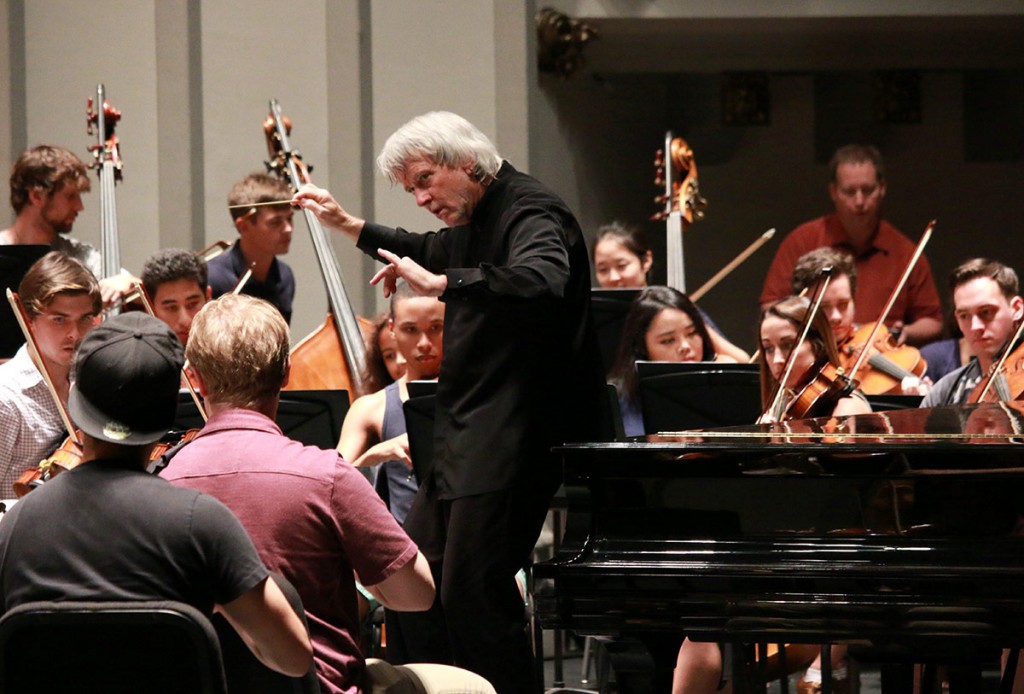USC Thornton Symphony to make its first performance of the year

Photo courtest of USC Thornton School of Music
Symphonic masterpiece · In a collaboration with Visions & Voices, the Thornton Symphony will perform on Friday at 7:30 p.m. in Bovard Auditorium. The performance will be led by renowned conductor Carl St. Clair.
The USC Thornton’s Symphony ensemble will explore concepts of fate and freedom in an unforgettable performance Friday of Pyotr Ilyich Tchaikovsky’s “Symphony No. 4 in F minor, Op. 36,” Giuseppe Verdi’s “La forza del destino” and Gustav Mahler’s “Ich bin der welt abhanden gekommen.”
The symphony will be led by conductor Carl St. Clair, artistic leader and principal conductor of the Thornton orchestras. St. Clair has worked with Thornton for over 20 years teaching and conducting, and knows how to get the most out of his musicians.
“[Our] challenges would have to be trying to convey the composer’s interpretations with the best of our ability,” said Sydney Mariano, a sophomore studying violin performance. “We’ve never experienced anything as dark and as disheartening compared to what many of these composers have faced, so we really hope to get the most genuine and real interpretation in our performance. [St. Clair]’s amazing because he helps us grow musically by putting these pieces into context, briefing us about the lives of the composers and about what they had been going through during the time.”
The night mainly centers on Tchaikovsky’s piece, “Symphony No. 4 in F minor, Op. 36,” though all of the compositions being performed are centered around the themes of fate and freedom, yet Tchaikovsky’s piece is perhaps the most well known. Throughout his life, composer Tchaikovsky faced many dark issues, including a struggling marriage, blackmail, depression, an oppressed sexuality and financial issues.
His fourth symphony, composed in 1877, came about after facing many personal troubles when he was teaching at the Moscow Conservatory. While dealing with the acceptance of his own sexuality, one of his students proclaimed her love for Tchaikovsky and even threatened to kill herself if they could not be together.
The two married, but Tchaikovsky attempted suicide and fled to Switzerland and then Italy, where he then finished his fourth symphony. Tchaikovsky’s emotions and internal struggles can be heard throughout the piece.
“There is not a single line in my symphony which I have not felt deeply, and which does not echo true and sincere emotions,” Tchaikovsky once wrote.
The night will also feature actors that will be reading Tchaikovsky’s program notes, which he wrote to a friend explaining the piece, as well as other correspondences between Tchaikovsky and Madame von Meck in which he frequently mentions themes of fate, adding to the mesmerizing nature of the performance. An RSVP is required for the event on the Visions and Voices website.
The performance is at 7:30 p.m. Friday in Bovard Auditorium.
